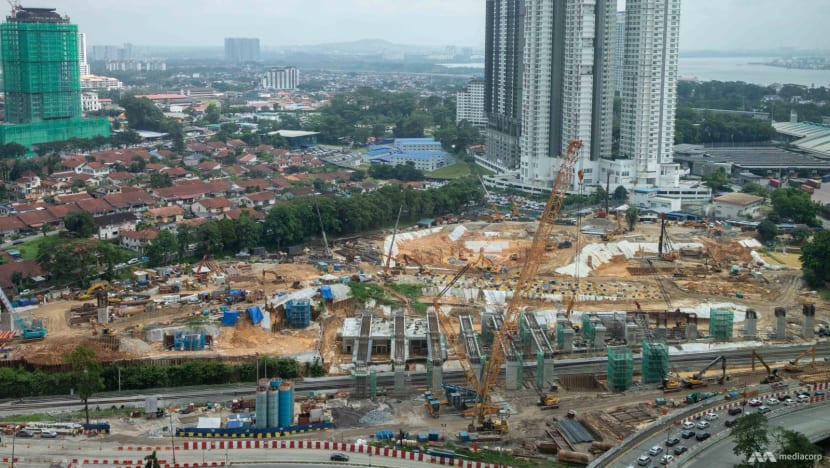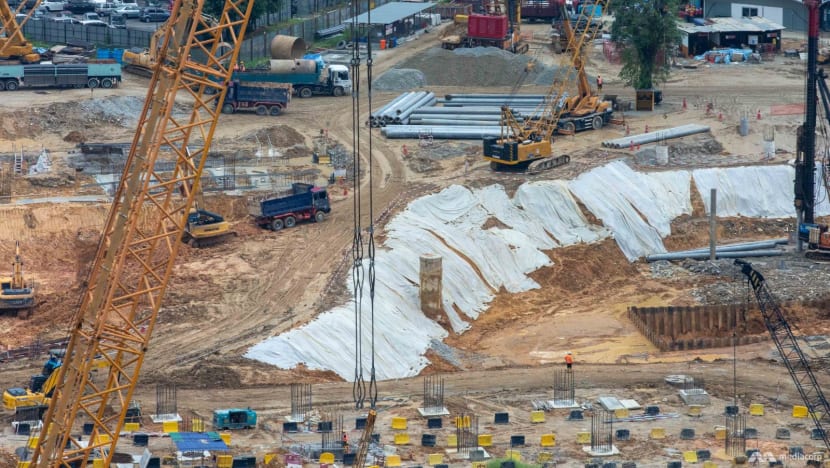Johor Bahru-Singapore RTS Link passes 65% construction milestone on both sides; connecting span complete
The latest milestone is the completion of the "drop-in span", which connects both sides of the viaduct.

This audio is generated by an AI tool.
SINGAPORE: Construction of the 4km Johor Bahru-Singapore Rapid Transit System (RTS) Link has crossed another milestone, with roughly 65 per cent of structural works on the Singapore side done.
The project has also reached 65 per cent completion on Malaysia's end, according to the country's Mass Rapid Transit Corporation.
The "drop-in span", which connects both sides of the viaduct, has been completed. This is a 17.1m-long reinforced concrete structure connecting Malaysia’s Pier 47 and Singapore’s Pier 48 above sea level – the closest piers to the other country.
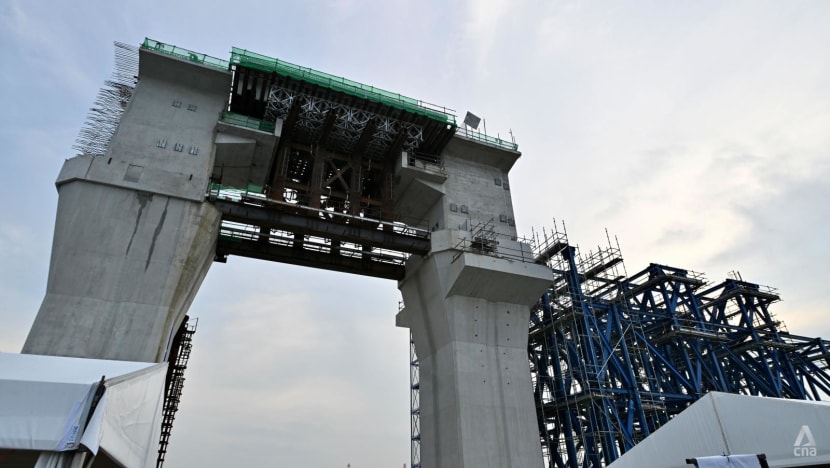
Singapore Prime Minister Lee Hsien Loong and Malaysia Prime Minister Anwar Ibrahim met on Thursday (Jan 11) to mark the completion of the connecting span.
Both prime ministers signed commemorative plaques symbolising a shared commitment to the rail project to improve connectivity between Singapore and Johor Bahru.
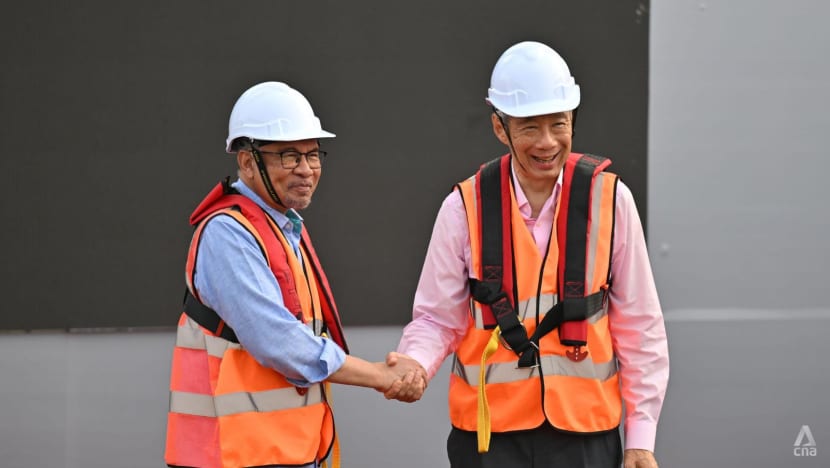
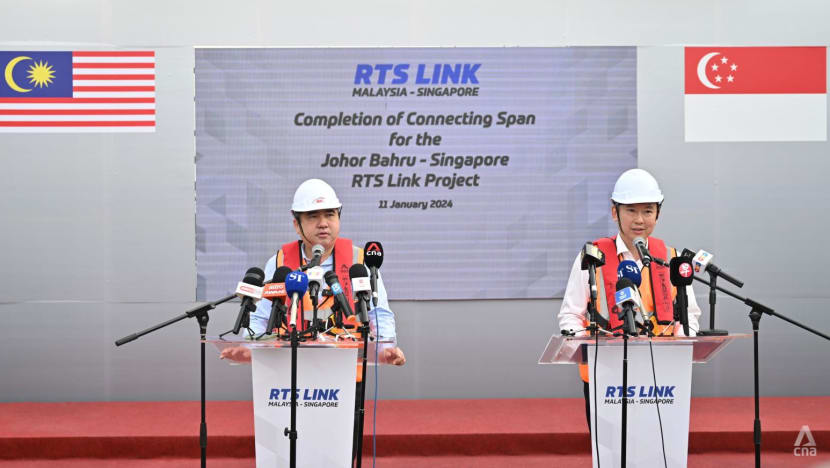
The RTS Link is expected to start passenger service by the end of 2026. It aims to ease traffic congestion on the Causeway – one of the world's busiest border crossings – by ferrying up to 10,000 passengers an hour each way on a journey that takes about five minutes.
It is estimated to cost RM10 billion (US$2.15 billion), with Singapore bearing 61 per cent of the cost.
COMPLETION OF SINGAPORE’S PILE CAPS
All 12 pile caps in the Straits of Johor on Singapore's side have also been completed, said the country's Land Transport Authority (LTA) on Thursday.
A pile cap is a thick concrete mat that rests on concrete or timber piles that have been driven into soft or unstable ground to provide a stable foundation. They will form the foundation for the piers that support the rail viaduct structure on land and sea.
Construction of the piers as well as the launch of viaduct segments are ongoing.
After civil infrastructure works are done, installation works for the rail systems will be carried out by RTS Operations. The company is a joint venture between Malaysia's Prasarana and Singapore's SMRT to operate the RTS Link service.
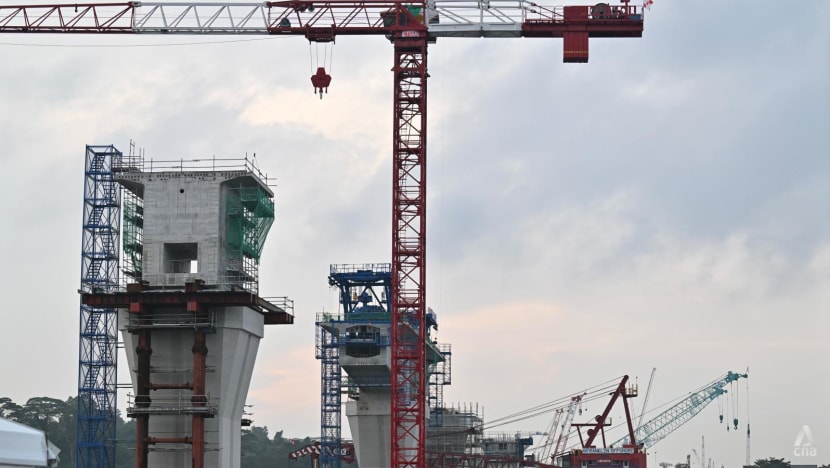
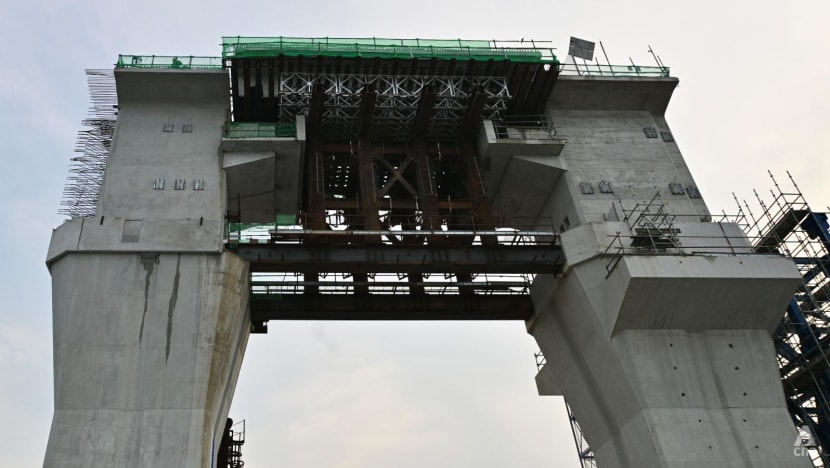
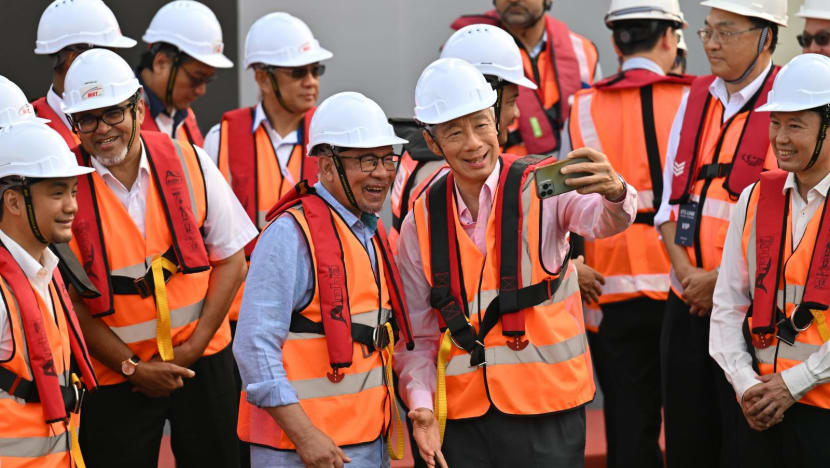
The RTS shuttle service will run between the Singapore terminus at Woodlands North station and the Malaysia terminus at Bukit Chagar station in Johor Bahru.
The Woodlands North station – which is being constructed at a maximum depth of 28m – will be connected via an underground linkway to the immigration area. On the Malaysia side, the immigration facilities will also be located at Bukit Chagar station.
This means passengers only need to clear immigration authorities once – at their point of departure. Currently, passengers need to clear immigration on arrival as well.
The Woodlands North station and CIQ (customs, immigration and quarantine) building, a three-storey structure with two basement levels, will be 10 times the size of a typical MRT station, LTA said.
The CIQ building is designed to BCA’s Green Mark Platinum Certification, with energy-saving equipment incorporated into its design and operations. These include features such as LED lighting, solar panels and a hybrid cooling system.
Both the station and CIQ building will be connected to the Thomson-East Coast Line Woodlands North MRT station via an underground concourse.
